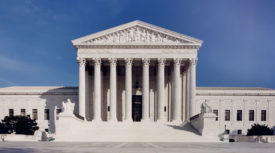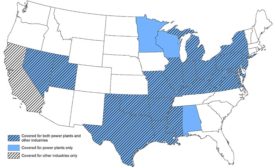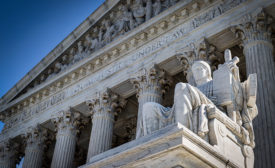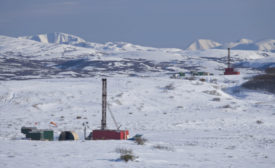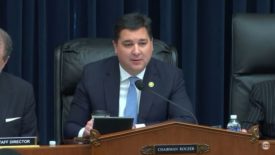Home » Keywords: » Supreme Court
Items Tagged with 'Supreme Court'
ARTICLES
Government
Regulatory Chaos Seen in Wake of US Supreme Court Loper Ruling
But supporters contend opinion will require agencies to stick to legislative intent
Read More
Governmment
Supreme Court Curtails Federal Rulemaking Authority
Contractor associations seek clarity on ruling, while environmental groups decry loss of a 40-year regulatory precedent
Read More
Air Quality
US Supreme Court to Weigh Blocking Smog Cut Mandates for States
High court to consider requests by some states, trade groups to pause final EPA plan implementation
Read More
Will the Supreme Court Soon Undermine Minority Contractor Programs?
Opponents are targeting disparity studies used to justify MBE rules
Read More
The latest news and information
#1 Source for Construction News, Data, Rankings, Analysis, and Commentary
JOIN ENR UNLIMITEDCopyright ©2024. All Rights Reserved BNP Media.
Design, CMS, Hosting & Web Development :: ePublishing







